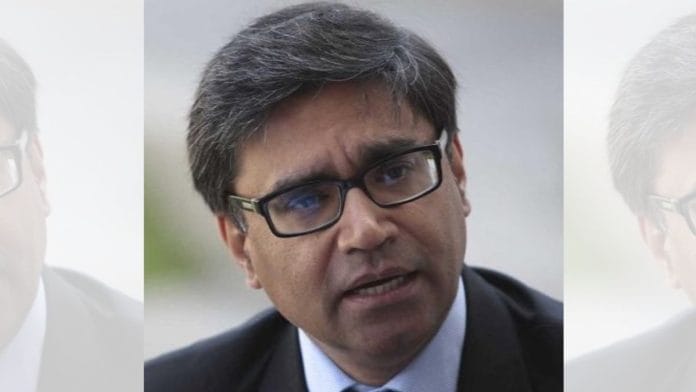New Delhi: Indian Foreign Secretary Vikram Misri will be in Bangladesh on 9 December for structured foreign office consultations with his counterpart, acting foreign secretary Riaz Hamidullah, the Ministry of External Affairs (MEA) said Friday.
MEA spokesperson Randhir Jaiswal said at the weekly press briefing that these discussions were a “structured engagement between India and Bangladesh”, adding there would be several other meetings as well.
There is, however, no confirmation on whether Misri would call on the chief adviser of Bangladesh’s interim government, Muhammad Yunus.
The visit by Misri comes at a time when ties between New Delhi and Dhaka have hit a diplomatic chill over the issue of the safety of Hindus and other minorities in the neighbouring country.
India expressed “deep concern” last week after the arrest of former ISKCON monk Chinmoy Krishna Das on charges of sedition. He was also denied bail by a court.
On the arrest, Jaiswal reiterated India’s stance that it expected Das’s “legal rights will be respected” and that the trial would be “fair and transparent”.
“He will be discussing all issues of mutual interest. Aside from meeting his counterpart, he will have several other meetings,” Jaiswal said.
Earlier this week, the premises of the Bangladesh Assistant High Commission in Agartala was breached by protesters and a flag of the country was torn. The Assistant High Commission has since suspended its visa and consular services.
Seven people were arrested Tuesday by the Tripura police, while three officers were suspended following the breach.
The incident led to Dhaka summoning Indian High Commissioner Pranay Verma Tuesday to protest the attack on its mission.
Speaking to the media after the meeting with Riaz Hamidullah, Verma said both countries shared deep and “multi-faceted” ties which should not be judged over “one or two incidents”.
Members of the interim government of Bangladesh, including adviser for youth and sports Asif Mahmud Shojib Bhuiyan, have called for the use of the United Nations Peacekeeping Forces to protect its missions in India, in the event that New Delhi “cannot provide adequate security”.
(Edited by Tikli Basu)






